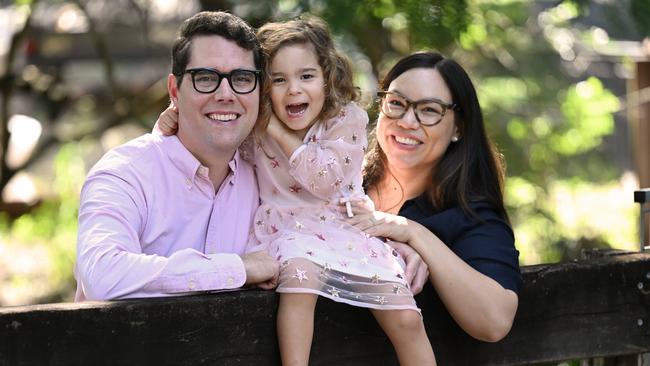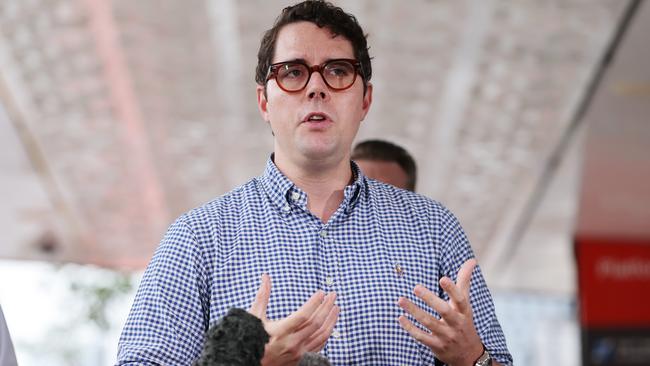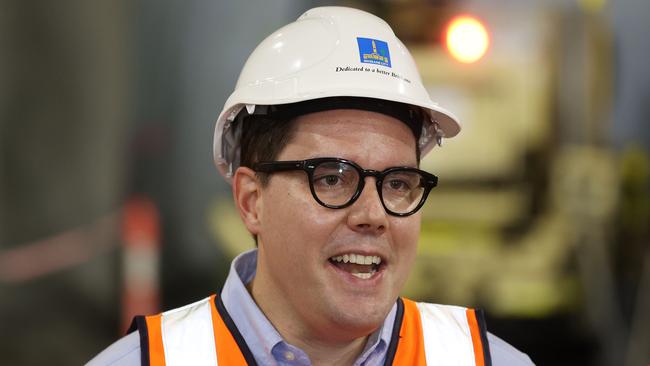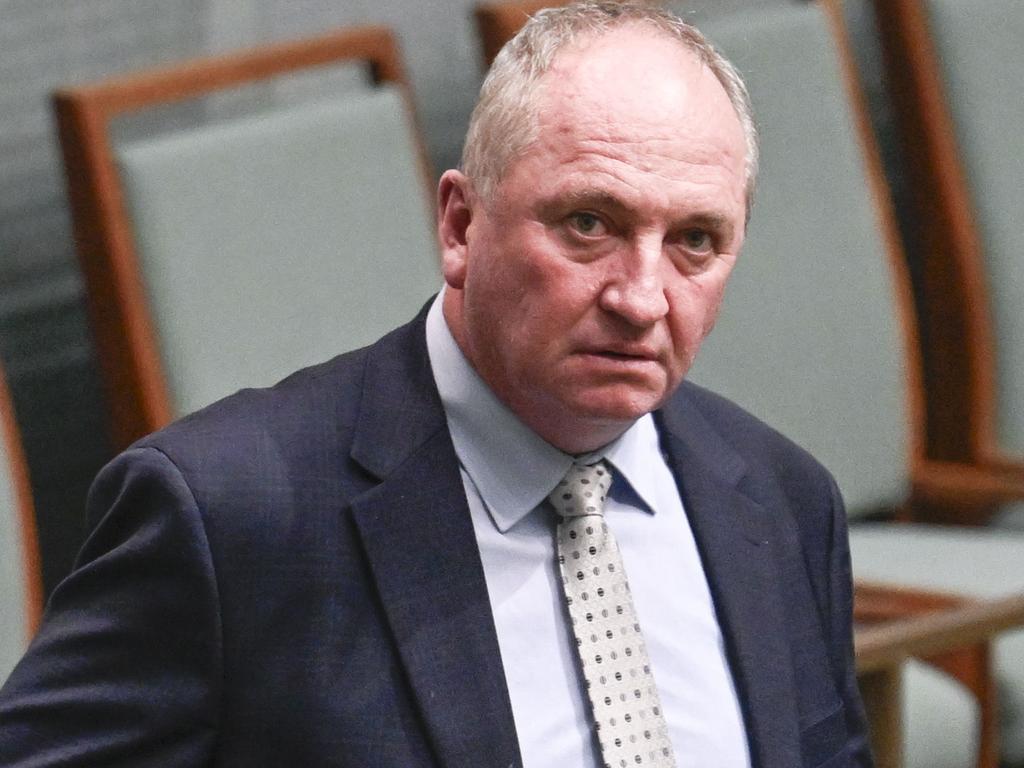I have prostate cancer; my first screening isn’t due for 14 years
Ryan Murphy is a husband, father and Brisbane City councillor. He was diagnosed with late stage two prostate cancer on Good Friday this year. He is 36.

All around the Capitol, tributes are flying for former US president Joe Biden, shockingly diagnosed with aggressive, late-stage prostate cancer at 82 years old.
If the most watched, most guarded man in the world can be surprised by a late diagnosis, it begs the question: Is what we are doing to detect this disease working?
I was recently diagnosed myself, at the age of 36. I’m late stage two, caught just in time.
Only one Queenslander aged 35-39 is diagnosed each year. It seems I’ve been volunteered as tribute.
I only know because my GP had added a PSA (prostate specific antigen) test to a routine blood panel. He did so against Medicare guidelines, which say I should first be screened in 14 years’ time.
After diagnosis I began to voraciously consume information about prostate cancer, night and day. I reached out to other men who had been diagnosed to learn more about the disease. In doing so I joined the great underground railroad of prostate cancer survivorship where I was introduced to one survivor, then another, and another.
For some, battling this cancer was a walk in the park. For others, it was anything but. But what struck me more than their bravery or candour was just how random and arbitrary it was for them to find this cancer in the first place.
Some had family history and monitored their PSA closely. Others ignored symptoms for years and hold deep regret. Some were dismissed by their GP. One man did everything right, then lost his pathology form. Mine sat in the glovebox for three months, so I get it.
This is the Hunger Games model we have contrived for Australia’s most common cancer in men.

One in five Australian men will be diagnosed with prostate cancer in their lifetime. Yet finding it still depends on a long chain of events playing out just right – having a GP, knowing your family history, getting a PSA test, interpreting it correctly, and receiving timely follow-up.
If you are a man in Australia you must navigate this game wholly on your own, and if you don’t play the game just right you will lose your life.
Under 50? You lose.
No GP? You lose.
Don’t know your family history? You lose.
GP doesn’t believe in PSA testing? You lose.
No follow-up on a rising PSA? You lose.
Move interstate and your records disappear? You lose.
Strangely, with other cancers we have a much more civilised approach. Women are invited into a national breast screening program from age 50, and it reduces mortality by 42 per cent in the screened group. Cervical screening has been so successful that 70 per cent of cervical cancer diagnoses now come from women who were never screened. Australians turning 45 can request a free bowel cancer test, and at 50 the kit arrives in the mail automatically.
But for prostate cancer, you don’t even get a pamphlet. Or a text message.
You get dropped into battle and told to fend for yourself.
This might all seem acceptable; after all, 95 per cent of men diagnosed with prostate cancer survive at least five years. But even so, it kills 11 men each day.
Save for my maverick GP it would have killed me too, robbing my daughter and her unborn sibling of a father, and my wife a husband.
Make no mistake, once you are in the fight against prostate cancer, your weapons are remarkable. Robotic surgery, alpha radiation therapy, next-generation hormone treatments, MRI and PSMA-PET imaging – it’s all brilliant.

But our approach to early detection should leave you feeling cold. We’ve built a system where the burden rests almost entirely on the man, and his GP, if he has one, to initiate and persist through a minefield of inconsistent advice, conflicting guidelines and outdated assumptions.
There are more than 275,000 Australian men alive today who have fought or are fighting prostate cancer. This year, another 26,000 – farmers, engineers, tradies, CEOs – will join them. They won’t agree on much, but one thing unites nearly all of them – they’ll wish they’d found it sooner.
Only 36 per cent of prostate cancers in Australia are diagnosed at stage one, when treatment options are widest, side-effects least severe, and the likelihood of a cure highest.
Let me be clear: I’m not arguing for population-wide screening of 30-somethings.
I’m lucky, I found it early. But many men won’t. They’re walking around today exactly as I was, as Joe Biden was – symptomless, clueless and blissfully unaware that they, too, are already playing a game they didn’t sign up for.
As a nation, we are more than capable of designing a national, risk-based screening model for prostate cancer. Countries such as the UK are already trialling such programs, using PSA tests, genomics and rapid MRIs to catch cancers earlier.
Australians should feel confident we can do the same. We’ve done it before.
Until then, your chances are one in five. The responsibility to find it is yours alone.
I wish you luck.
And may the odds be ever in your favour.
Ryan Murphy is an LNP councillor with Brisbane City Council, representing Chandler Ward.



